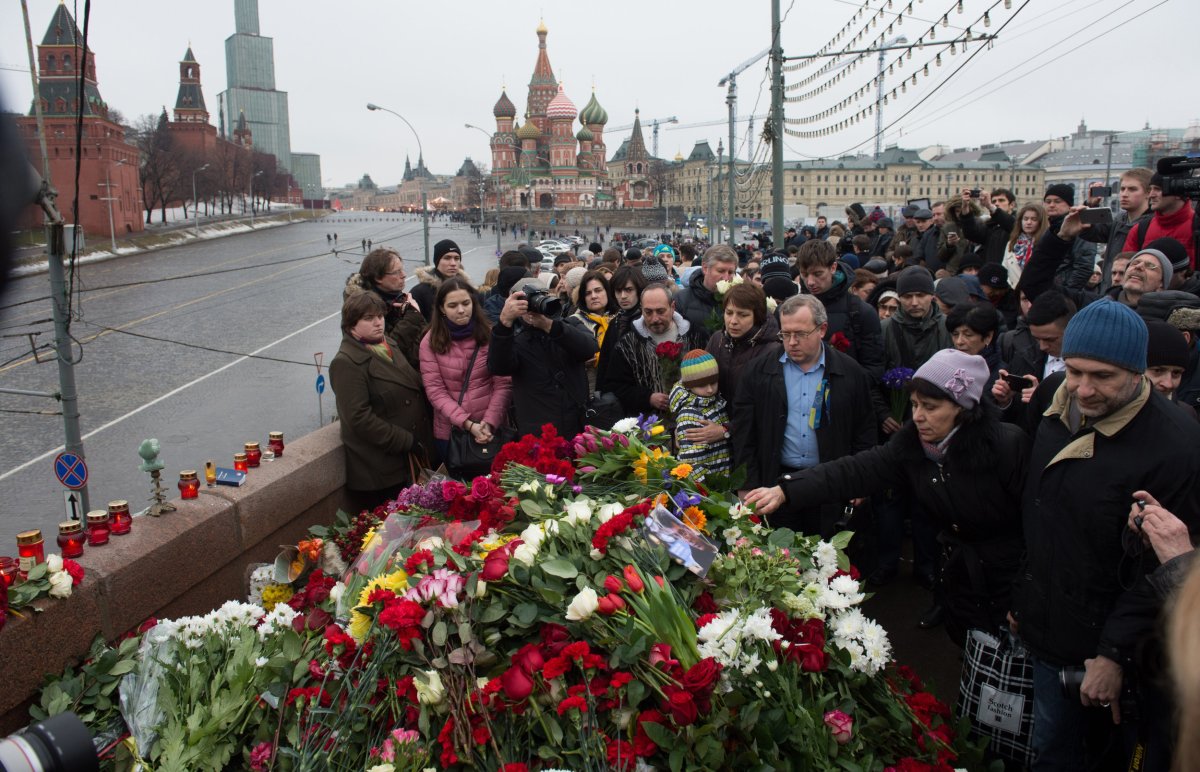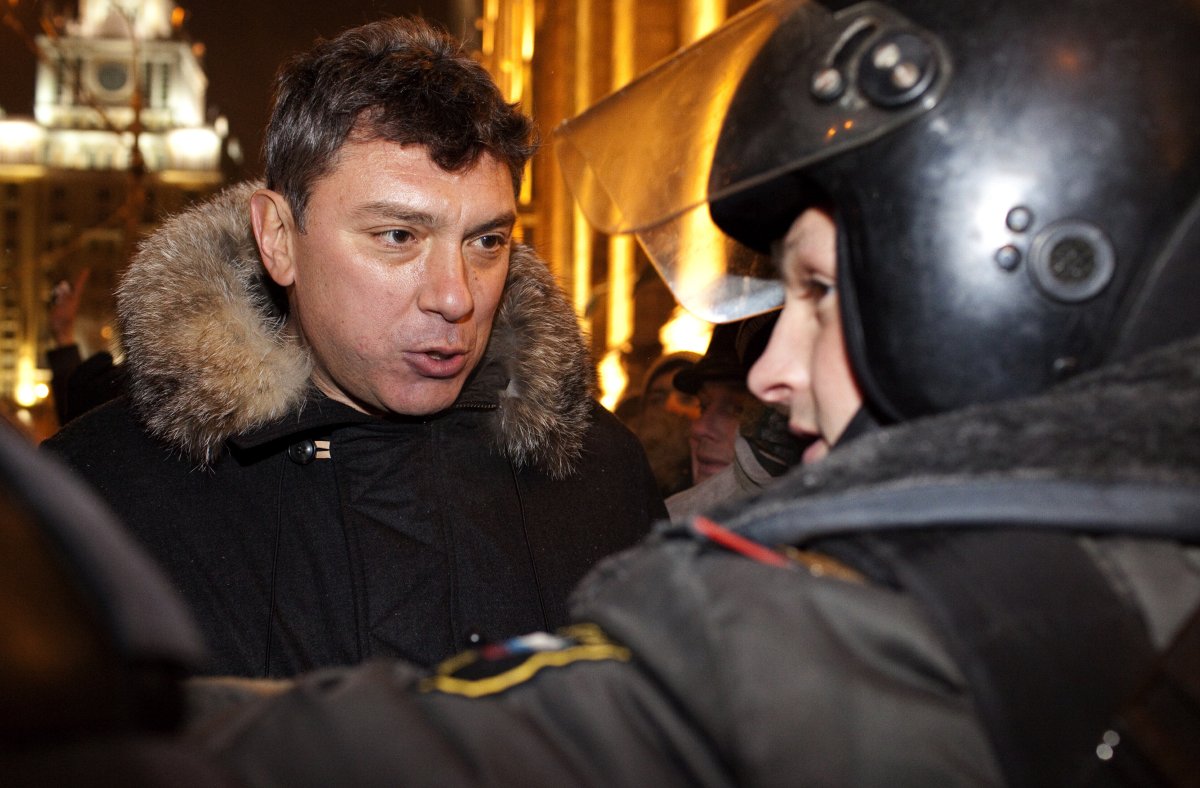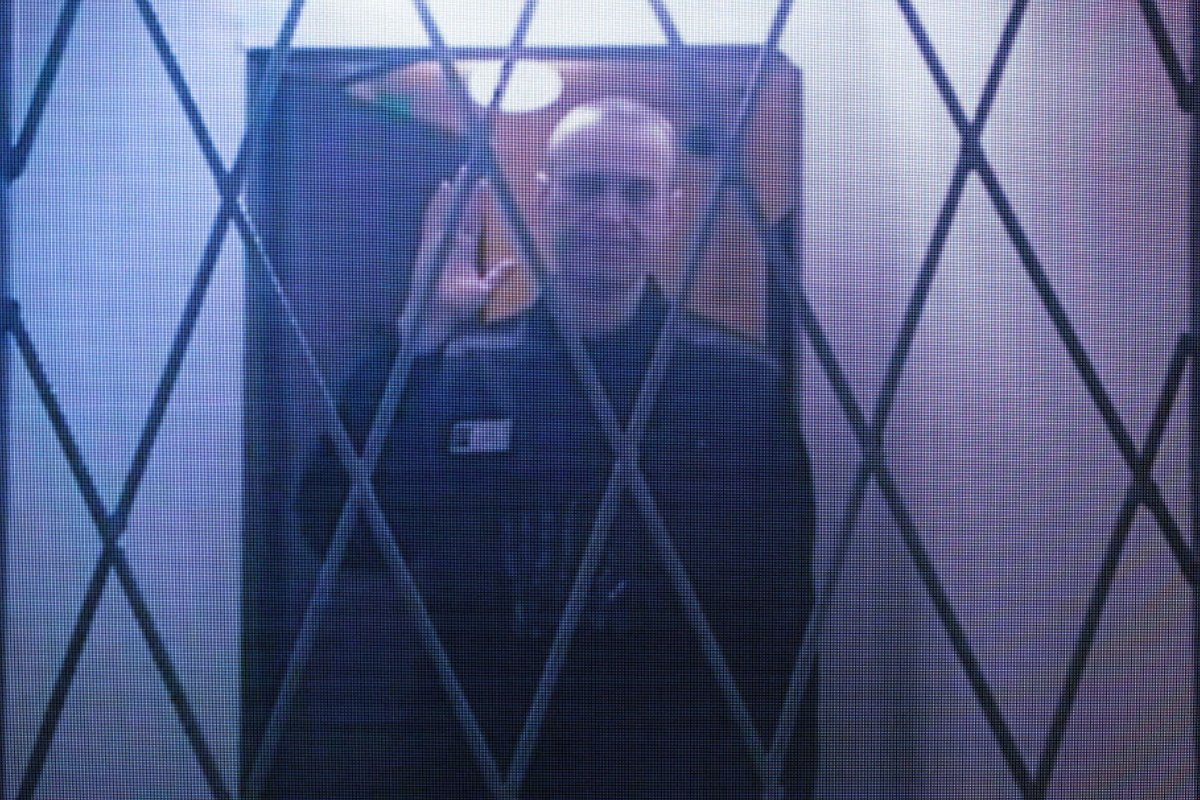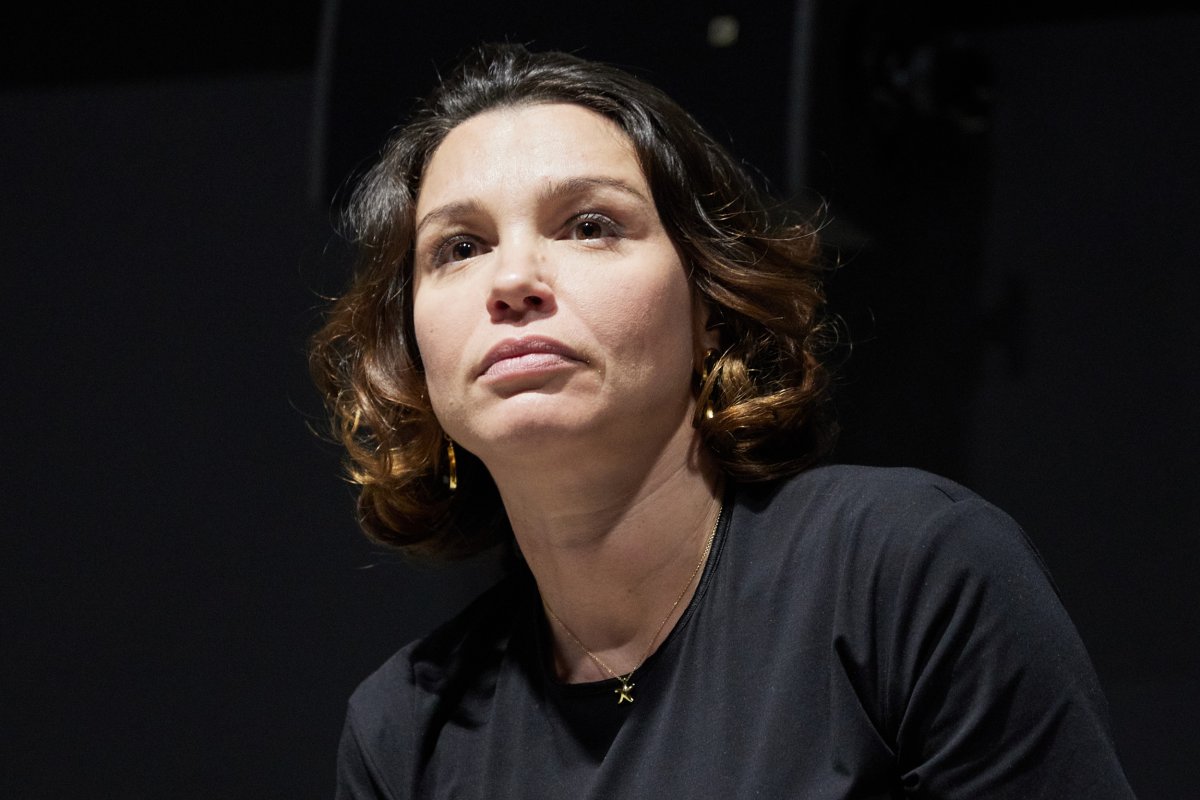My father, Boris Nemtsov, published a book in 2007 titled Confessions of a Rebel, and its preface was a manifesto in which he said he would enter Russian politics again.
He thought Vladimir Putin was fundamentally wrong in the path he had chosen for Russia, a disastrous one that was moving away from democracy to rebuild an autocracy. He felt something had to be done to stop this.
At that time, my father’s message was not heard. Part of the problem, which was not unique to Russia, was that economic conditions were favorable.
After Russia’s painful economic transition in the 1990s, Putin was very lucky that commodity prices, including oil and gas, were high and the markets were booming. So people weren’t paying much attention to politics.
They focused on their private lives and new consumer power, able to buy not only basic amenities but durable goods, cars, and so on. Life was relatively good for many Russians, though not all. They credited Putin’s economic policies for this.
When my father was speaking out, many Russians thought they were fine, and so what was the problem? As long as they could enjoy their lives, living and working and opening businesses, traveling and using credit lines, they were happy enough.
Newsweek Illustration/Getty Images
In 2005, I graduated from university and started working for an asset management company that my ex-husband founded. I was interested in financial markets, and the Russian stock market looked really promising at the time, with a bunch of IPOs.
I had a very normal life. I didn’t expect that to change quite so dramatically.
There were two main causes of this major turning point. The first was Russia’s unimaginable annexation of Crimea in 2014, which really worried me about the future of my country. I firmly believed that Putin had crossed the so-called red line.
The second was my father’s assassination the following year.
I wasn’t an expert in politics, although I followed it of course. But I met my father before he was killed to warn him that I thought the personal risks for him were much higher after Putin took Crimea.
I told my father to think seriously about fleeing Russia because of my gut feeling, my intuition about what was happening.
He smiled and said: “I will tell you when it gets really dangerous.”
What bewildered me so much was the patriotic euphoria that spread all across Russia, and Moscow was no exception.
I was working as a journalist at RBC, a privately owned television network for business, like the Russian version of Bloomberg. The people there were quite modern. Many had a Western outlook and, I thought, were able to critically assess everything.
But no. Most colleagues were happy with Putin’s actions in Crimea. I wondered: Are they all crazy? I just couldn’t understand. It’s a very strange and uncomfortable feeling when everyone around you is for something and you are against it.
That’s why I fully understand now how public perceptions are shaped. When everybody around you is saying “that’s great”, it’s very difficult to say: “No. This is not great.”
In the subsequent war in eastern Ukraine, our television network, though still controlled by a private owner, gave it toothless coverage.
I was much more opinionated in my coverage. I was focused on the national economy, which was affected by sanctions because of the war, but I had a political position against the war and showed my teeth. My editors and supervisors didn’t like it.
My father was assassinated at around midnight on February 27, 2015. I was at my rented apartment within walking distance from my father’s home. I was already in bed and I switched off my phone.
My mother was also at my place because we were planning a trip to Italy the following day. Her phone was still on, and she got a call from a friend. She was the first one to learn the news.
She started to cry and yell, and I woke up. She entered my room and said: “Your father was shot and he is dead.”
That’s how I learned about his assassination. But I didn’t believe it at first. I turned on my phone and got a lot of messages from friends and colleagues offering their condolences at the same time.
I wanted to confirm the news and started to read my own media outlet, RBC, but I still didn’t believe it. I finally believed the news when I saw it breaking on the CNN website.
Afterward, we dressed up and went to the scene of the murder, but we arrived quite late.

DMITRY SEREBRYAKOV/AFP via Getty Images
I believe Putin holds ultimate, first responsibility for all major political assassinations in Russia, not only my father’s, but also for Alexei Nalany’s, Anna Politkovskaya’s, and so on.
It could never have happened if Putin hadn’t approved of it.
If we compare how Putin perceived Navalny and my father Boris Nemtsov: He hated my father, but he hated Navalny so much more.
This isn’t something that has never happened in any other country. Any dictator or autocrat tries to get rid of his political enemies and opponents.
I was right in my assessment of the state of Russia in 2015. After my father’s assassination, I decided to leave the country. Many people just didn’t understand why. They said I was exaggerating the risks, and to wait and see what happens.
Then in 2022, with Russia’s full-scale invasion of Ukraine, hundreds of thousands of Russians were forced to leave the country and they didn’t have time to prepare.
I left Russia when I was 31 years old. I’m almost 40. Many people left Russia in their late 30s. It’s easier for me now because I’ve already spent nine years in Europe. I made a wise decision.
Everything has changed in my life since then. When I left Russia, I started life from scratch. I worked as a journalist for Germany’s public broadcaster, Deutsche Welle, and interviewed politics and world leaders, mainly from the post-Soviet space.
I hadn’t been involved in politics or social activism before. But I strongly believe I made a moral choice.
First, to be very vocal about the quality of the investigation into my father’s murder. I was highly critical of the investigation, and clear on what I believed the motive to be.
And second, I wanted to carry on my father’s political legacy, so I established the Boris Nemtsov Foundation for Freedom in Germany.

OXANA ONIPKO/AFP via Getty Images
Before my father’s assassination, my life was normal. It’s not anymore.
Over the last nine years, the risks have substantially increased for people both inside Russia and outside of it.
We learned recently of the violent attack in Lithuania on Leonid Volkov, who was Navalny’s chief of staff and his closest political ally.
So even if even I wanted to quit, I cannot. I have no doubts that I am a target of the Russian state, but I’m not first in the line.
I am very visible. Our opponents wouldn’t believe that I had just disappeared.
Disappearing won’t decrease the risks. Probably, if you are less visible, it might increase the risk. You never know.
Also, I have a lot of responsibility to the foundation. I created it with my own hands and I don’t want to abandon it. The foundation is one of my life’s biggest accomplishments.
When I learned that Navalny had been killed in prison, I was at the Munich Security Conference, and one of the things I said was: Guys, our risks are now much higher than they were a week ago.
I cannot do anything about that. Safety is not granted. But I’m not trembling.
I had a business meeting when I got a call from Olga Shorina, the co-founder of the Nemtsov Foundation, in Munich. She told me Navalny had died.
It was shocking. I knew Navalny and he was a personal friend. I had no doubts that Putin ordered his assassination. He sent him to a very remote penal colony. So that appears to have been the plan.
You’re just always in this situation. I was also thinking about other political prisoners. The reality is that Putin is likely to get rid of everybody.
We are now in what I would describe as very dark times for Ukraine, for Russia, and for Russian dissidents. I see no good outcome in the foreseeable future.
In order to be able to work, you must be very, very resilient.
Hearing the news about Navalny was a double blow. My grandmother had passed away on February 14. On the Friday, when I learned about Navalny, it was my grandmother’s funeral in Russia, but I couldn’t go.
Public support for Ukraine is criminalized in Russia. There is a special clause in the criminal code of Russia that implies a long prison term for discrediting the Russian Armed Forces.
But it’s defined so broadly, you could theoretically get seven years in jail for saying something like “Zelensky is a cool guy”.
From day one, I have been very vocal about the nature of this brutal invasion of Ukraine. So I can’t go to Russia. It’s too high risk, and I don’t want to spend my life in prison. It would be a waste of time, and not the best thing I can do for my country.
You’re just afraid of turning on your phone.
Putin and his system are putting more and more pressure on you, creating these unbearable conditions in which very few people can survive psychologically.

VERA SAVINA/AFP via Getty Images
First and foremost, we don’t have an opposition. Please do not apply a democratic framework to analyzing our Russian reality right now.
We have a resistance formed of journalists, politicians, intellectual leaders, and so on. Navalny’s Anti-Corruption Foundation is still the strongest and most organized political force.
Most people are in exile. I don’t know about hope for an opposition. But what can we do right now? And what is Putin trying to prevent us from doing?
We can still shape popular perceptions through online platforms, including YouTube. Blocking YouTube was an option for the Kremlin, but Putin’s team came up with a smarter plan to destroy the business model of the biggest channels.
Russia has adopted a law that prohibits placing adverts on any channels, not only on YouTube, run by what it defines as “foreign agents”. The vast majority of our major journalists are foreign agents by this definition.
They cannot carry on producing the content because they have no sources of income, which is a big challenge.
But you have to try all the time to speak to Russians inside and outside of the country, and to explain to them what’s wrong and shape popular perceptions.
I feel we do not talk enough about problems that are crucial for Russians. The state of the economy, infrastructure, healthcare, education, and so on. We must find a new approach for talking about these issues in an appealing manner.
We are currently trying to explain very broad concepts of liberal values and democracy, but I’m not sure a lot of Russian people are really into that.
Of course, we should be very aware of the current situation and to shape the understanding of this, and present a possible vision for the future of Russia.
In Navalny’s terms, this was the “beautiful Russia of tomorrow”—and this is something we should put a lot of work into right now.
I would not say that there is no hope. The risks are very high, but that doesn’t mean you should give up, or you end up doing nothing.
As Navalny once said, echoing a famous quote: “The only thing necessary for the triumph of evil, is for good people to do nothing. So don’t do nothing.”
I still think change might come from within Russia. The role of emigrants will probably be limited to providing assistance and advice rather than being a game-changer.
We’ll see new leaders inside our country, though I’m not sure if they will be democratic or undemocratic.
Defeating Putin is in the whole world’s interest. He represents a threat to global security. But I don’t see a clear strategy for that. I saw tactical moves, but not a strategy for Russia and the existential threat it poses, including in the E.U.
I want to hear the strategy. What does the plan involve? And what is the preferred outcome of this war?
For example, in Germany, there are endless discussions on whether they should send long-range Taurus missiles to Ukraine or not.
Of course they should. It’s out of the question. But what would they like to see as the preferred outcome? This is foundational for defining your strategy.
If you want Ukraine to win, then you have to put your economy on a war footing; to produce more weapons and ammunition, among other measures.
Another thing that surprises me in Europe is the number of regular people who are living like it’s peacetime. No, there’s no peace in Europe anymore. We know what Putin is up to.

Oleg Nikishin/Getty Images
The first thing on my agenda going forward is to survive.
Second, speaking as the leader of the Nemtsov Foundation, we must preserve our human capital, helping exiles to integrate and build their careers.
And also we must reduce our reliance on foreign donors and aid to keep the institutions of Russian civil society alive. We should build bridges with business people in exile who are against Putin and the war. We need our own sources of funding.
First and foremost, the media: We need infrastructure and vibrant Russian-language media outlets to help get our message through to Russia so its communication with the outside world is not cut off.
My most recent project is the Venture for Democracy Fund.
It’s going be a venture investment fund that will invest in innovative businesses run by exiled Russians and Belarusians as well as entrepreneurs from post-Soviet countries who are clean and unrelated to Putin.
We want to help them build their own businesses abroad, but also transfer 50 percent of the carried interest to support Russian civil society actors.
I know these mechanisms do not exist in the world, so we have the first. I’m very glad that I managed to convince experienced investors of Russian origin to support this effort, both intellectually by picking investments and financially.
So that’s what we can do apart from this great goal of survival.
Zhanna Nemtsova is cofounder of the Boris Nemtsov Foundation for Freedom and codirector of the Boris Nemtsov Academic Centre for the Study of Russia at Charles University Department of Philosophy.
All views expressed are the author’s own.
As told to Shane Croucher.
Do you have a unique experience or personal story to share? Email the My Turn team at [email protected].
Uncommon Knowledge
Newsweek is committed to challenging conventional wisdom and finding connections in the search for common ground.
Newsweek is committed to challenging conventional wisdom and finding connections in the search for common ground.


